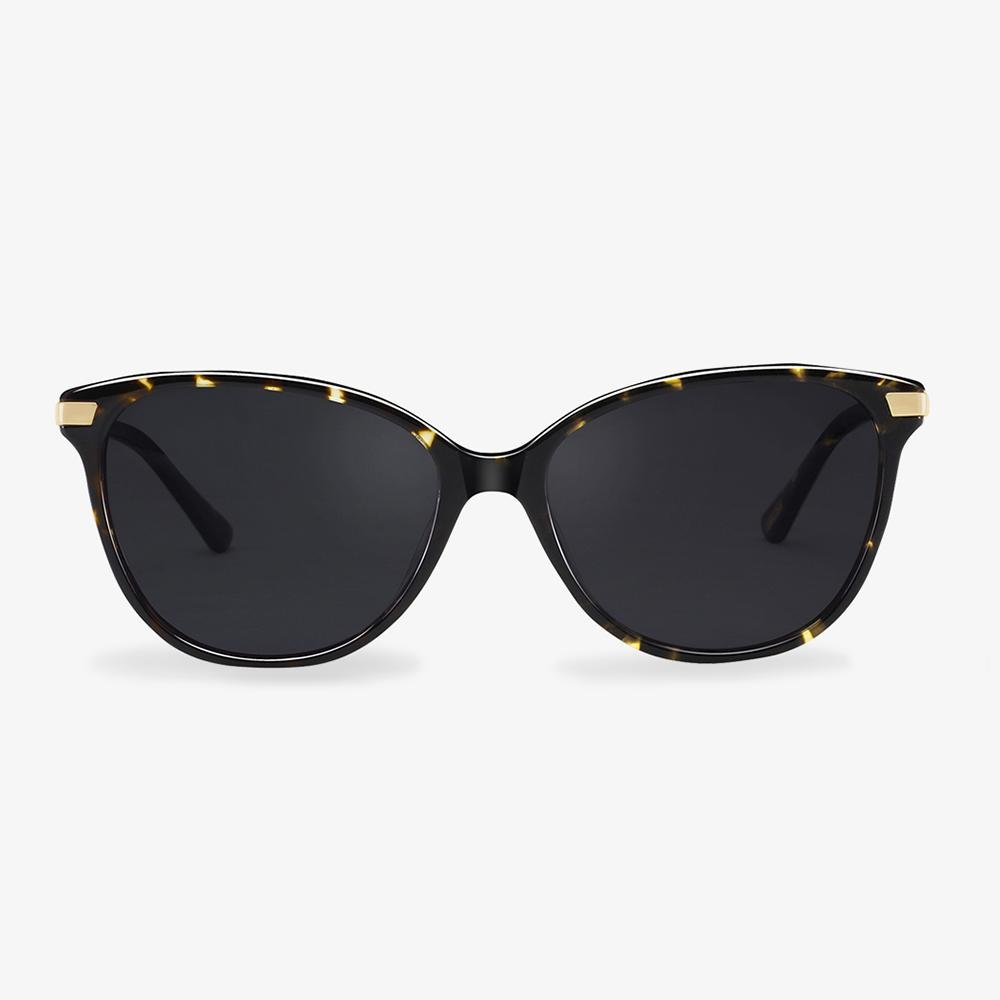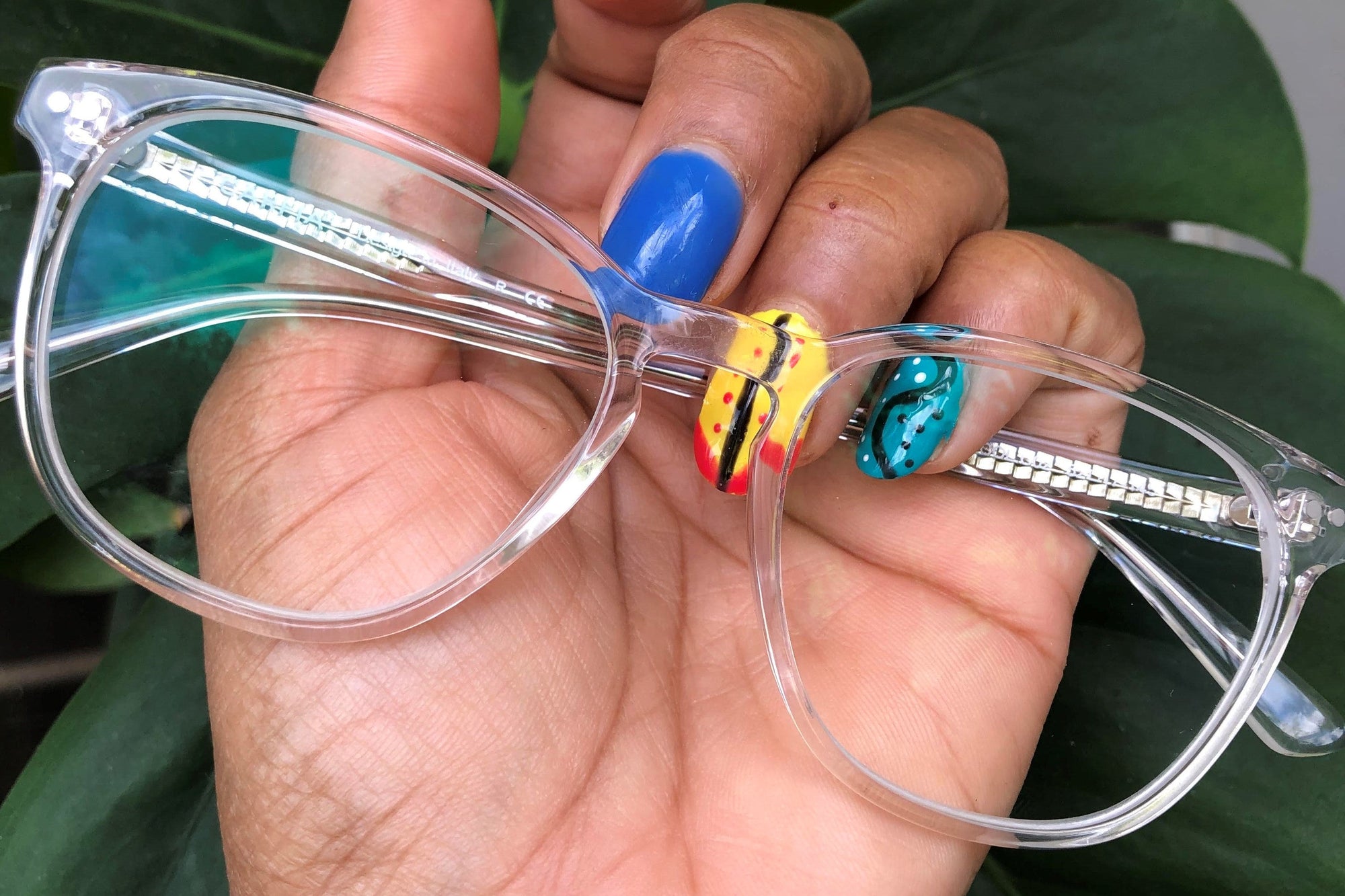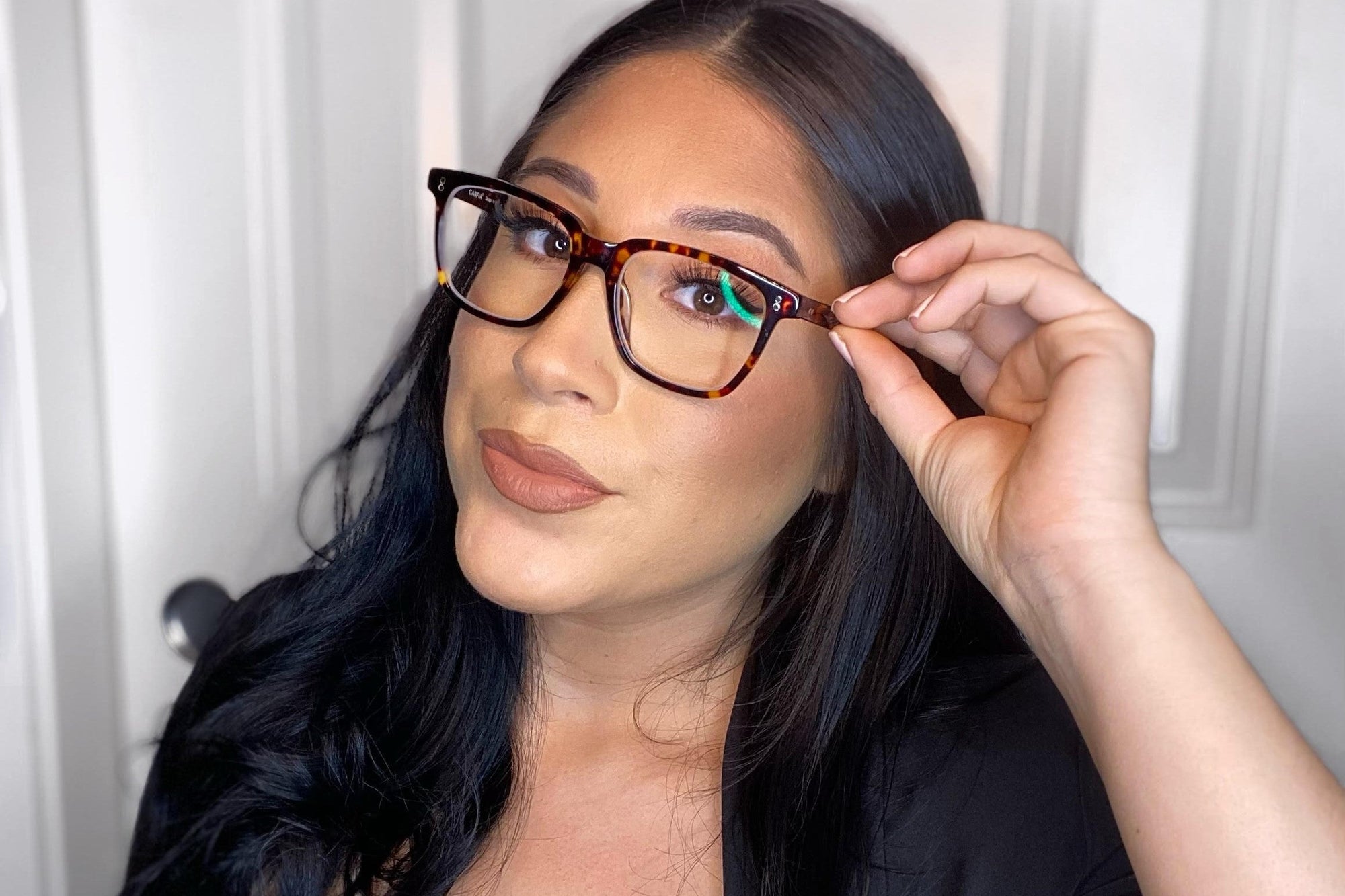The working principle of driving glasses
The driving glasses are designed according to the polarized angle and radian of the lens and the principle of precision optics. It can only let the beneficial light pass through, and other light sources, like strong sunlight, car headlights, and other light sources are filtered, to eliminate the interference of external light, and avoid the appearance of eye-catching, dazzling, and other situations. That's basically how the driver glasses are designed.
How to choose blue light blocking glasses?
While trying it on, look at the electronic screen from a distance to see if it stimulates your eyes. Holding the glasses in front of a display screen or under an LED light to see if they reflect blue light on the surface of the lens. It shows that blue-blocking glasses can block blue light. The special blue light flashlight shines on the white cardboard through the lens, the blue light that passes through the blue-blocking lens is noticeably dimmed, while the blue light that passes through the normal lens is not changed at all, which is what the blocking blue light does. You can go to a professional eyeglass shop to detect instruments through the spectrum of professional authority, and the best blue light blocking rate is between 60%-70%.
Basic principles of progressive lenses
The surface of the progressive slice is divided into five regions. There are far, middle, and near optical areas. They are respectively corresponding to see distant objects, middle distance objects in the near distance objects. One pair of glasses is multi-purpose. In appearance, it is not very different from regular lenses. There is no clear dividing line. Distal use area: The area above the progressive slice is the distal use area, which is used to correct the distal refractive error. Proximity area: from the matching lens cross down, the refractive power of the lens continuously increases the positive degree, which is used to see close objects. Gradient area: The channel connecting the far and near areas. It is an area of regular change from top to bottom, used for transitioning and seeing objects at intermediate distances. The length of the gradient is very important for the wearer's adaptation. The rate at which the degree of gradient changes is called gradient. The gradient can be uniform or variable. Peripheral area: Changes in the surface curvature of the lens will lead to aberrations in the peripheral areas on both sides of the lens, mainly astigmatism and prism effect, which will interfere with a vision to a certain extent, resulting in blurred vision or distortion. And it will affect the wearer's adaptation to the progressive lens.
Do Reading Glasses Hurt Your Eyes?
Do wearing glasses worsen your eyesight? You may also have this question. No, wearing glasses shouldn’t worsen your eyesight even if you have 20/20 vision. People wear glasses for many reasons, such as correcting the way the eye process light and visuals. Wearing glasses doesn’t mean poor vision because the refractive error does not mean you will need to wear corrective eyeglasses.
The decision to wear glasses is up to you. If your eyes feel fine, and your vision is sufficient without them, they might be unnecessary. And you need to know that glasses can improve your eyesight while you are wearing them as long as you get the correct prescription.
Reading glasses are good for presbyopia people because they can it more comfortable for them to see things as close range. But what if you do not have presbyopia or problems seeing things up close? Is it bad to wear reading glasses when you have perfect vision?
No, wearing reading glasses does not hurt your eyes, no matter your level of visual acuity. So, if you need a pair of reading glasses, Koalaeye glasses are recommended. They are stylish and come at a cheap price.
Why should you choose thin lenses?
Regular lenses are great for low-prescription people, but for high-prescription people, high-prescription regular lenses are too thick and heavy, making them unattractive and have a poor wearing experience. For high-prescription people, we recommend that they choose thin lenses with a high refractive index because they are lighter and more attractive to wear. For any astigmatism above +3.00, we recommend 1.67 or 1.74 refractive index lenses because these lenses are aspherical in design, which means they are thinner, flatter, and lighter than standard spherical lenses, which reduces the magnification of your eyes to other people.
How Should Glasses Fit?
In order to enable the glasses to fit on your face and ears, you need to pick the right frame width for your face. The width of your frame is the entire horizontal measurement of the front of your frames. A correct frame width will ensure your eyes are properly aligned in the center of your lenses for optimal vision. The frame width should be slightly wider than your face but with the space between your temple and frame no larger than a finger’s width.
Moreover, you also should ensure the Arm Length is right for you. The arms of glasses should run along with your temple and wraps around your ears. The arms should run horizontally and sit comfortably around your ears only touching your head right before your ears. Of course, you can find the arms-length of glasses on the side of the temple.
Best Eyeglasses For Women - KoalaEye
KoalaEye eyeglasses for women are designed in a special style and have a unique aesthetic feeling. They're sexy, feminine, and colorful. They can fully consider the wear comfort and appropriate display body shape. Koala Eye eyeglasses for women are a unique design that combines functionality and elegance, perfectly setting off the feminine temperament.











































